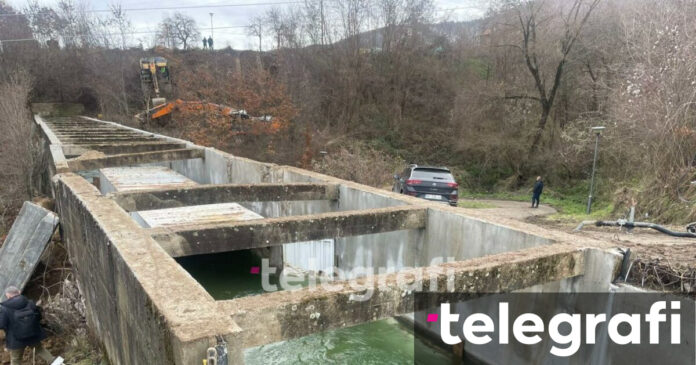The Impact of the Ibër-Lepenc Canal Explosion and the Path to Restoration
In recent weeks, the Ibër-Lepenc canal has been at the forefront of discussions regarding infrastructure safety and water supply management due to a notable explosion that has caused extensive damage. The Chief Executive Officer of the “Ibër-Lepenc” company, Faruk Mujka, has shed light on the ongoing situation, detailing the repairs, safety measures, and the significant financial implications tied to the incident.
The Incident and Immediate Response
The explosion in the Ibër-Lepenc canal occurred under circumstances that prompted immediate intervention. Mujka revealed that the damage resulted from both the use of explosives and recent adverse weather conditions. “There were cracks, numerous damages, which also caused leakage in the canal,” Mujka stated, highlighting the critical nature of the situation. To address the leaks, an emergency operation was initiated that involved replacing damaged pipes with a container through the night, a necessary measure to mitigate the impact on water supply to local residents and enterprises.
This prompt intervention allowed the team to restore water supply functionality in record time, ensuring that the community faced minimal disruption. Mujka emphasized the importance of acting quickly, stating, “We had to replace the pipes with a container and we did this during the evening, after midnight until this morning so that citizens and operators do not investigate the lack of water.”
Restoration Work: The By-Pass Construction
Following the immediate repairs, the next phase involves constructing a by-pass system. Mujka announced that this construction will take place “from today” and is expected to be completed within three to four days. The by-pass will play a crucial role in not only maintaining water supply but also enabling the necessary renovations to the canal itself.
“The supply has returned to normal in the early hours of the morning, while from today we will continue to build a by-pass,” Mujka explained. This system aims to allow the water to flow while repairs on the main canal structure are executed, ensuring continuity for the residents, the Kosovo Energy Corporation (KEK), and other stakeholders reliant on the water supply.
Assessing the Damage and Financial Implications
While immediate repairs were successful, the long-term repercussions of the explosion remain unclear. Mujka noted that a thorough evaluation of the canal’s condition will be conducted once the by-pass is operational. This evaluation will determine the extent of the damage—whether only half the canal or the entire structure has been compromised.
He indicated that such assessments lead to comprehensive project planning, emphasizing the cost implications involved. Mujka estimates that repairing or rebuilding the canal could exceed one million euros. “From experience and similar works, a channel of such dimensions costs us somewhere around one million euros,” he stressed, highlighting the significant financial burden the incident presents to the company.
Broader Implications for Workers and the Community
Beyond the infrastructural damage and financial costs, the explosion has also raised concerns regarding the safety of the staff and workers engaged in the restoration efforts. Mujka noted the dangers associated with the damage, underscoring the importance of worker safety. “The damage caused to us has been very large… in the danger of the workers,” he stated, reminding the public that safety must prioritize whenever such incidents occur.
The incident not only emphasizes the importance of robust infrastructure systems but also highlights the interconnectedness of community safety, water supply, and worker welfare. The company is committed to ensuring that despite the challenges they face, the restoration process does not compromise the safety of its employees.
Conclusion
The explosion at the Ibër-Lepenc canal has undoubtedly posed significant challenges, leading to immediate repair efforts and long-term strategic planning. Under the guidance of leaders like Faruk Mujka, the “Ibër-Lepenc” company is working diligently to restore normal operations while also addressing the pressing financial and safety concerns that arise from such unforeseen events.
As the construction of the by-pass progresses and evaluations of the damage occur, it is clear that the road ahead will require meticulous planning and substantial resources. However, the swift action taken thus far indicates a commitment to not only restore the water supply but to improve the resilience of the canal infrastructure to prevent similar incidents in the future. This scenario serves as a reminder of the delicate balance between maintaining essential services and ensuring the safety of those who work to uphold them.














